What Destroys Collagen In The Body: 7 Things You Must Know
“Collagen is an essential scaffold protein that gives smoothness and elasticity to skin, but its production declines with age. Finding ways to tackle this problem is now strongly promoted as an effective way to transform skin and hair, repairing age-related deterioration.”
Dr. David M. Reilly, et al., Skin collagen through the lifestages: importance for skin health and beauty
Collagen is a vital protein that helps to keep our skin looking young and vibrant. It is responsible for giving our skin its firmness and strength, as well as helping to repair damaged tissue.
However, there are certain things in our diet and lifestyle that can wreak havoc on collagen levels, causing the breakdown of this crucial protein and leading to a host of skin problems.
In this article, we will answer the question of what destroys collagen and take a look at 7 of the most common things that destroy collagen in the body, as well as some tips on how to avoid them and try to reverse the effects.
What exactly is collagen?
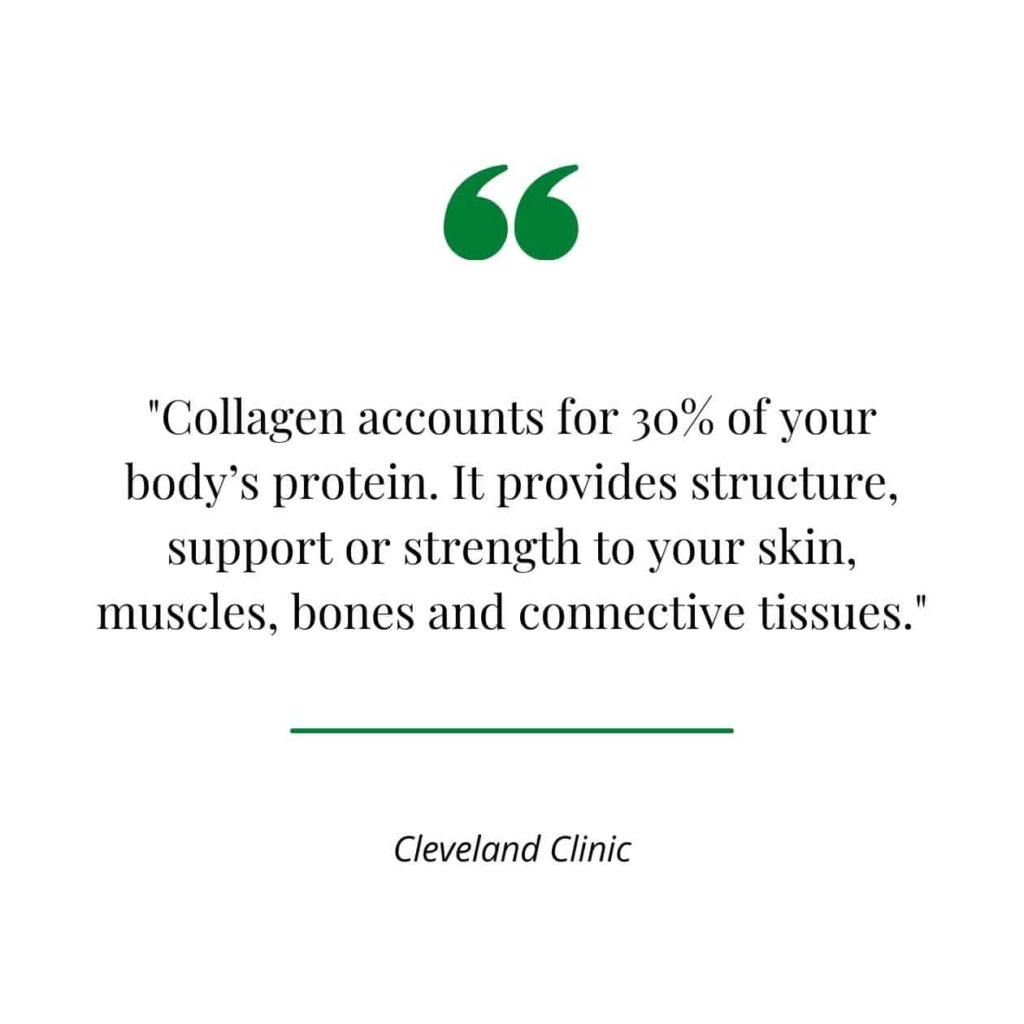
Before we get into the things that destroy collagen, let’s first take a look at what this protein is and why it’s so important for our skin.
Collagen is a type of structural protein that is found in the connective tissues of our bodies, including our skin, muscles, ligaments, and tendons. It is responsible for giving these tissues their strength and elasticity.
As we age, our bodies produce less and less collagen, leading to a decrease in the firmness and elasticity of our skin. This process is accelerated by certain lifestyle and dietary choices, as well as exposure to environmental factors such as UV radiation from the sun.
What destroys collagen in the skin?
Let’s take a look at the most common factors that destroy the natural collagen in our skin:
1. Poor diet
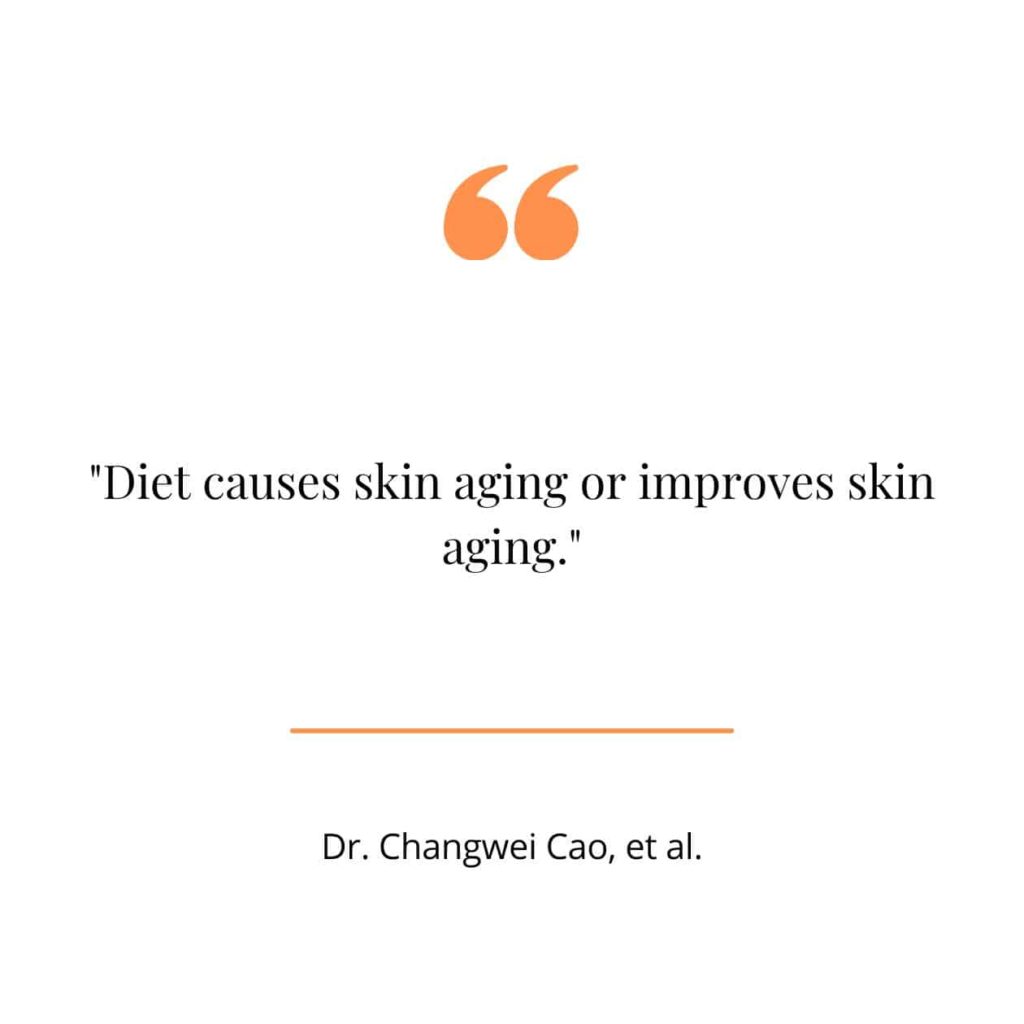
Foods that are high in refined sugar and saturated fats can cause inflammation throughout the body, including in the skin.
Inflammation is a major contributor to collagen breakdown, so it’s important to choose a healthy diet rich in fruits, vegetables, and lean proteins.
Here’s a look at some of the foods you should definitely enjoy in moderation:
Refined carbs
Consuming too many refined carbs can lead to a condition known as glycation. This is when sugar molecules attach themselves to collagen fibers, causing them to become stiff and unable to function properly. This leads to a decrease in collagen production and an increase in the breakdown of existing collagen.
French fries and other fried foods
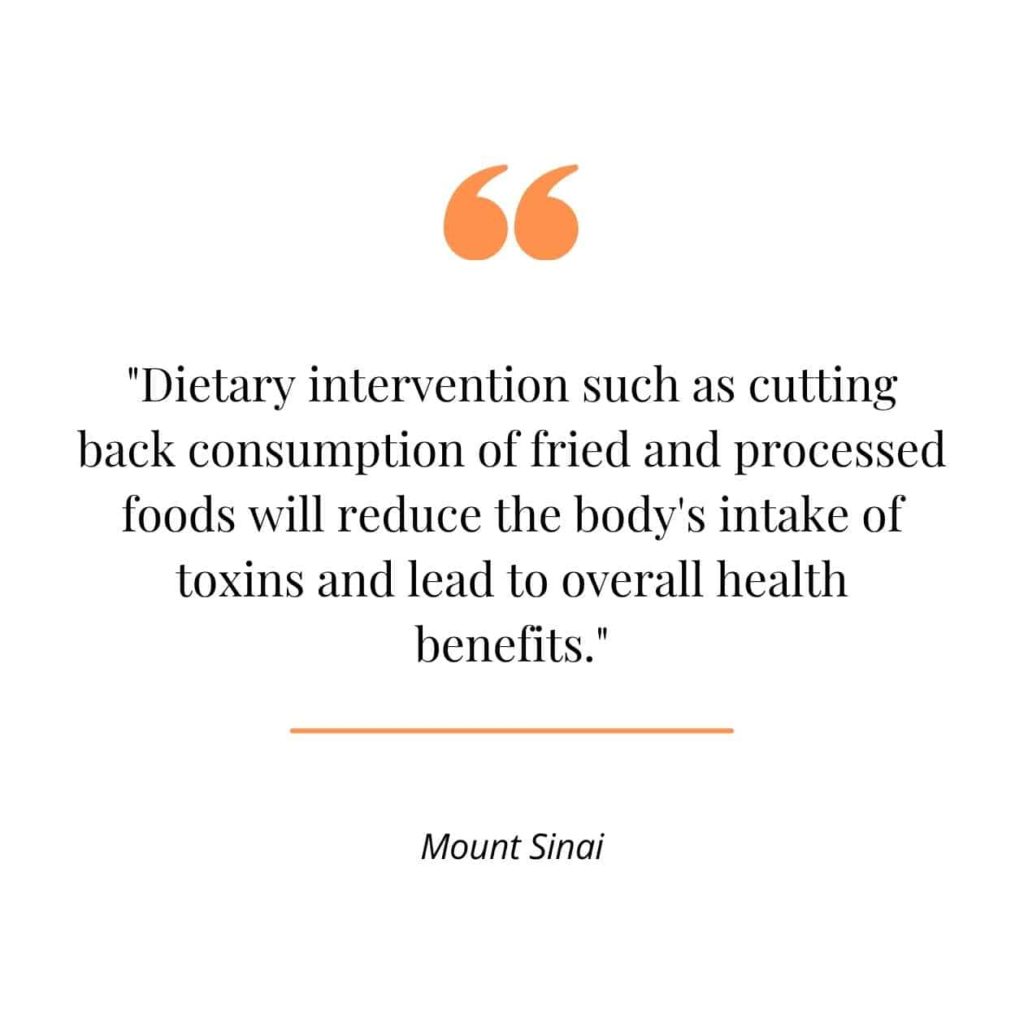
French fries, potato chips, and other fried foods are high in saturated fats and trans fats, both of which cause inflammation throughout the body.
Additionally, frying food can damage the proteins in collagen fibers through a process known as cross-linking. This causes collagen to become more brittle and likely to break down over time.
Soda and other artificial sugar-sweetened beverages
Soda and other sugary drinks contain high amounts of refined sugar, which is known to cause inflammation throughout the body. This can lead to a breakdown in collagen fibers and undermine their ability to repair damage caused by free radicals.
Processed meats
Processed meats, such as hot dogs and bacon, are high in saturated fats as well as toxic preservatives that can damage collagen fibers. These foods also contain excessive amounts of sodium, which can cause water retention and bloating around the face and other areas of the body. This is another contributing factor to a breakdown in collagen health.
2. Excessive sugar intake
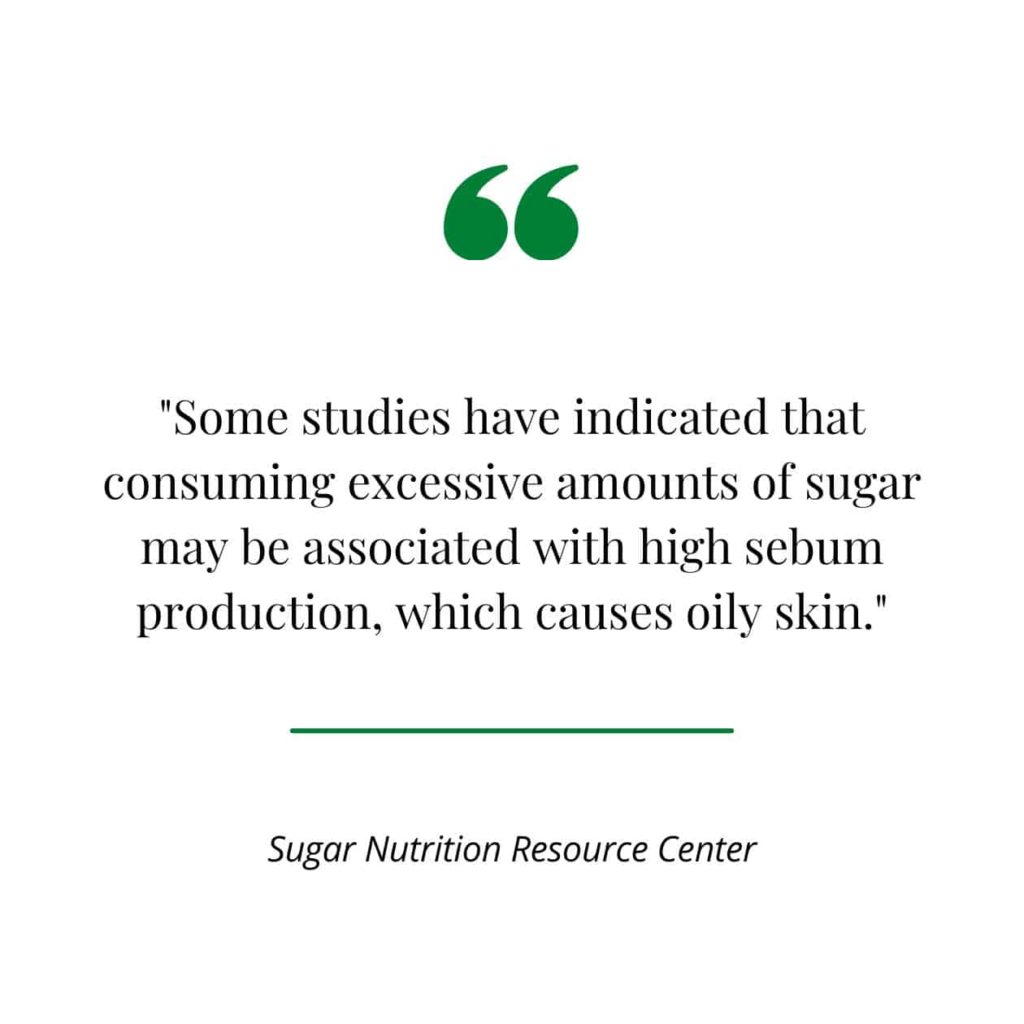
While sugar itself is not responsible for breaking down collagen, it can contribute to the development of certain conditions that cause a breakdown in collagen.
For example, eating excessive amounts of refined sugar can lead to blood sugar imbalances and insulin resistance. Both of these issues have been linked with an increased risk of skin aging and a decrease in collagen production.
3. Environment toxins
Exposure to environmental toxins, such as air pollution and cigarette smoke, can cause oxidative damage in the skin. This goes hand in hand with the development of skin conditions like acne, eczema, and psoriasis that contribute to collagen breakdown over time.
4. Pre-existing medical conditions
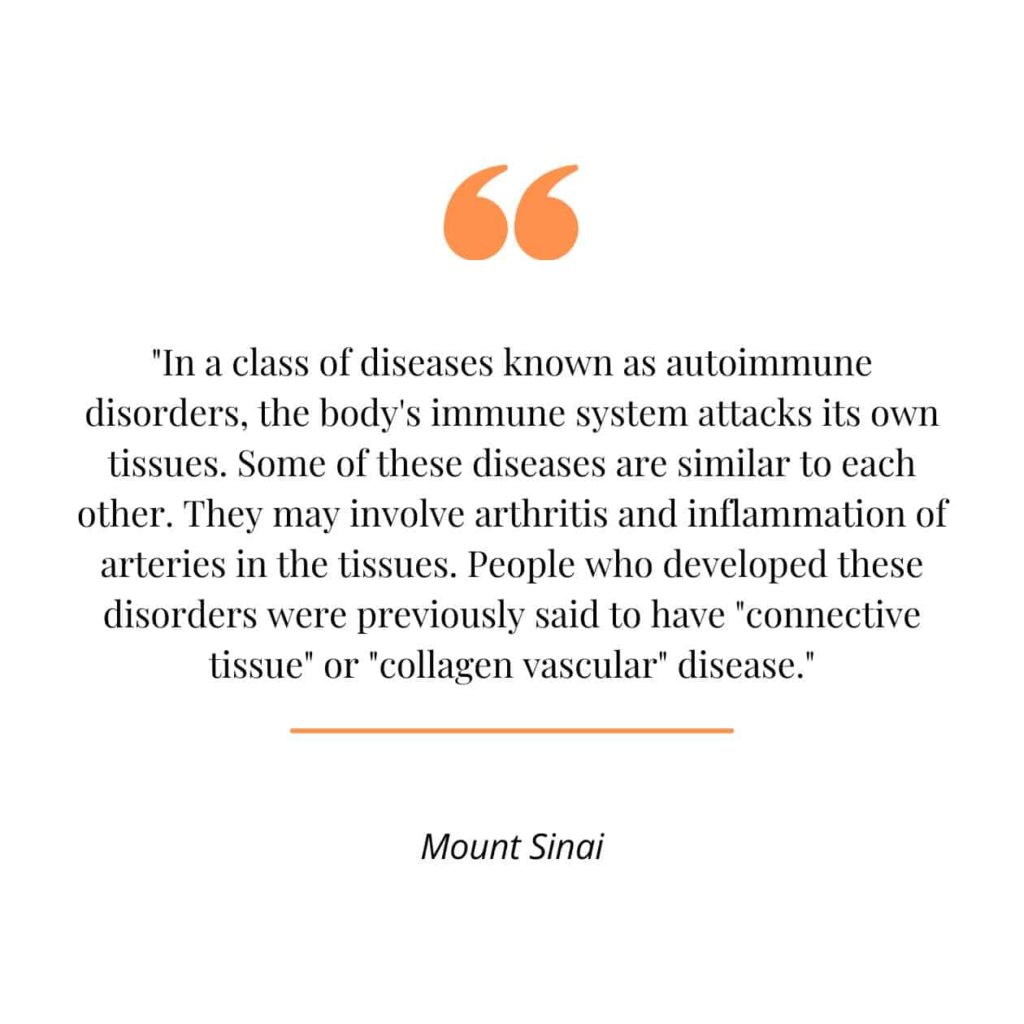
Certain medical conditions can cause a breakdown in collagen fibers, leading to skin aging and wrinkles. For example, conditions like diabetes and thyroid disease are known to contribute to collagen loss.
Additionally, any condition that causes chronic inflammation throughout the body can damage collagen fibers and lead to a decrease in their production.
5. Skincare regimen
Just as certain foods and lifestyle choices can lead to collagen breakdown, the products you use on your skin can also have a harmful effect.
Using skincare products that contain harsh chemicals and artificial fragrances can damage collagen fibers over time.
Additionally, using too many exfoliating scrubs or abrasive face washes can cause an increase in the breakdown of existing collagen.
6. Prolonged UV exposure
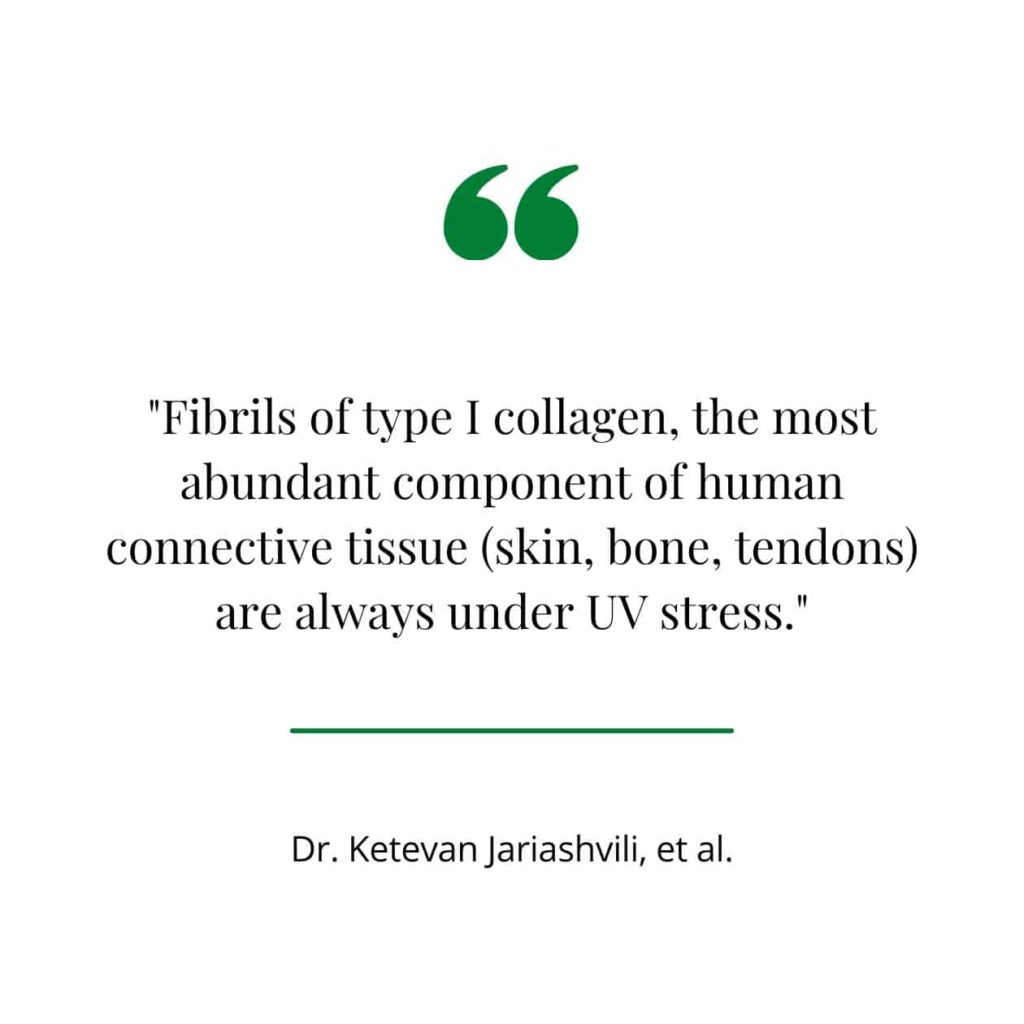
Spending too much time in the sun can cause damage to the collagen fibers in your skin. This is because UV rays from the sun can cause oxidative stress and inflammation, both of which lead to a breakdown in collagen.
Extended sun exposure can also cause your skin to become dry and wrinkled.
7. Menopause
During menopause, women can experience a decrease in estrogen levels that can lead to a breakdown in collagen fibers. This is because estrogen plays an important role in collagen production and regeneration, so a drop in these hormone levels can cause skin to become depleted of collagen over time.
Foods High in Collagen that You Should Add in Your Diet Today
While there are a number of things that can lead to collagen breakdown, there are also foods that can help to promote collagen production.
Adding foods high in collagen to your diet is a good way to make sure you’re getting the nutrients your body needs to produce this important protein.
Some foods that are high in collagen include:
Wild Salmon
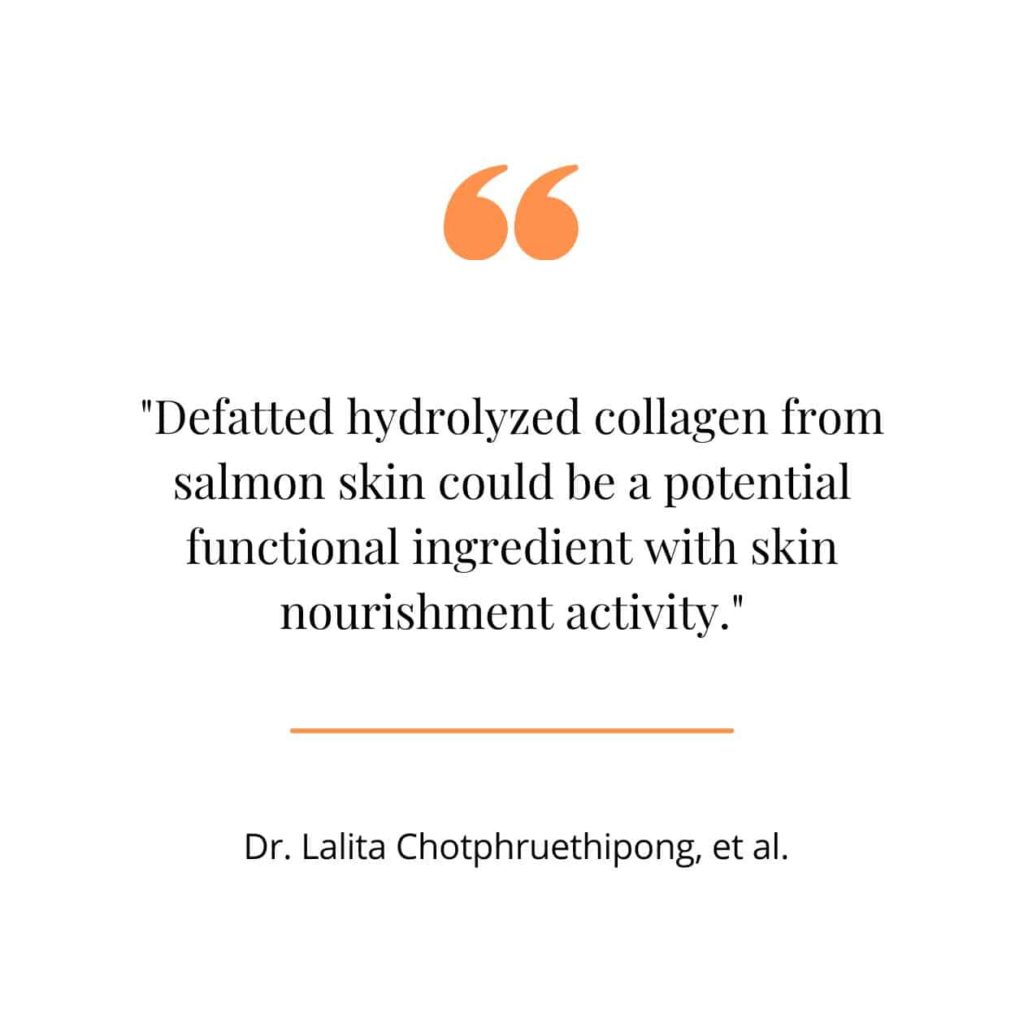
Wild salmon is a good source of protein, and it’s also high in omega-3 fatty acids. These essential fatty acids are important for maintaining the health of your skin, hair, and nails, and they can also help to reduce inflammation throughout the body.
Chlorella
Chlorella is a type of algae that can help to support collagen production in the body. It’s high in protein and vitamin C, which are both important nutrients for maintaining healthy collagen fibers.
Leafy Greens
Leafy greens like kale and spinach are packed with nutrients that are important for collagen production. They’re high in vitamin C, which helps the body to produce collagen, as well as magnesium, iron, and calcium.
Citrus
Citrus fruits are another good source of vitamin C, which is essential for collagen production. They also contain flavonoids, which are plant-based compounds that have antioxidant and anti-inflammatory properties.
Eggs
Eggs are a good source of protein, and the yolks are also high in vitamin A. Both of these nutrients can help to support collagen production in the body.
Eggs also contain plenty of antioxidants, which reduce oxidative stress and help to protect collagen fibers from damage.
Berries
Berries are rich in antioxidants, and they also contain polyphenols. These plant-based compounds can help to reduce inflammation throughout the body, which can in turn help to protect collagen fibers from damage.
Tomatoes
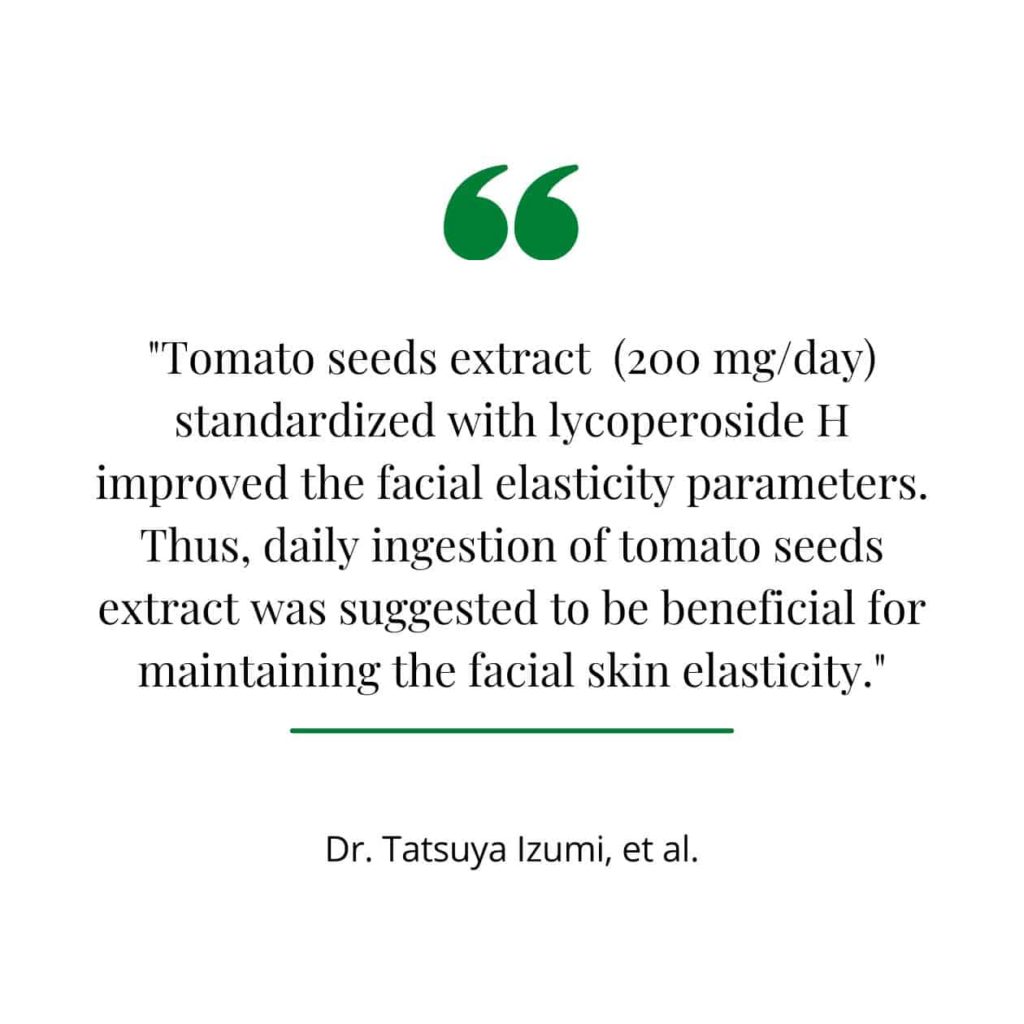
Tomatoes are a good source of lycopene, an antioxidant that can help to protect your natural collagen. They’re also high in vitamins A and C, both of which are essential for collagen production.
Pumpkin Seeds
Pumpkin seeds are a good source of zinc, a mineral that’s great for boosting collagen. They also contain antioxidants and anti-inflammatory compounds that can help to protect existing collagen fibers from damage.
Avocados
Avocados are a great source of healthy fats, and they’re also high in vitamins C and E, both of which are important for collagen production. They contain antioxidants that can help to reduce inflammation and they’re also a good source of potassium, which can help to maintain the health of your skin.
Garlic
Garlic is a powerful antioxidant that can help to reduce inflammation throughout the body. It’s also high in sulfur, which is essential for protein production and collagen synthesis. Including garlic in your diet is a great way to protect existing collagen fibers from damage and boost your body’s natural collagen production.
Chia Seeds
Chia seeds are a good source of omega-3 fatty acids, which are important for maintaining healthy skin. They also contain fiber and protein, both of which are essential for collagen production.
What about collagen supplements?
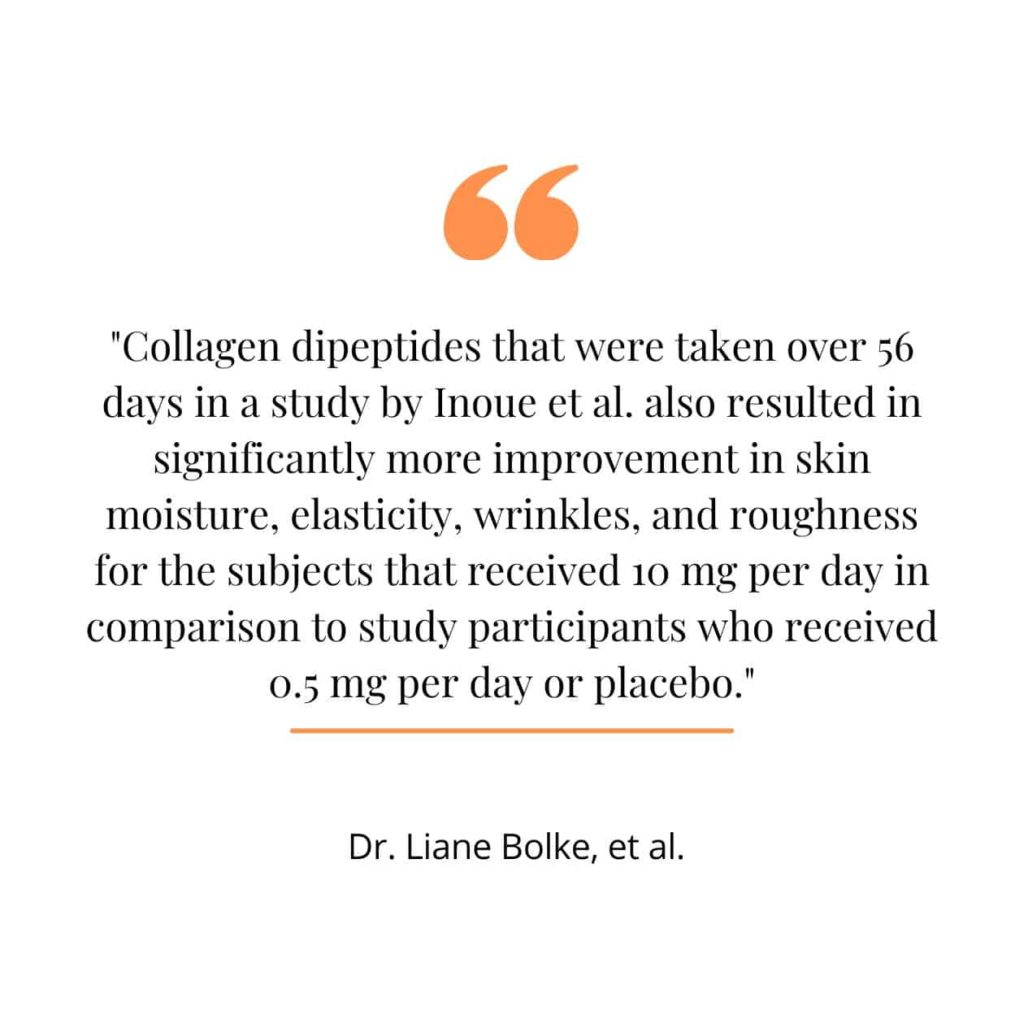
While diet is the best way to get the nutrients your body needs for collagen production, supplements can also be helpful and the two paired together is even better!
Collagen supplements provide your body with the amino acids it needs to produce collagen, and they can help to support healthy skin, hair, and nails.
If you’re looking for a collagen supplement, look for one that is high in amino acids like hydrolyzed collagen, glycine, and proline.
You should also look for a supplement that is free from additives, fillers, and artificial ingredients.
And finally, it’s best to choose a collagen supplement that has been tested by an independent third party lab to ensure its quality and purity.
In Conclusion
Now that you know what destroys collagen in the body, it’s important to take steps to protect your natural collagen.
Thankfully, there are plenty of things you can do to help keep your collagen healthy. Eat a diet rich in antioxidants and anti-inflammatory foods, get regular exercise, and make sure to include plenty of vitamin C-rich foods, protein, and healthy fats in your diet. And of course, don’t forget to include a high-quality collagen supplement as part of your daily routine!
If you’re interested in learning more about your body’s natural collagen production, check out our other blogs! You can also check out our naturally sourced collagen supplements!
Organixx Clean Sourced Collagens blend contains five types of collagen from four sources. What’s more, it’s combined with targeted nutrients such as zinc, vitamin C, and vitamin B6 which specifically enhance the bioavailability and potency of collagen. Clean Sourced Collagens is formulated from the ground up to enhance and support your body’s natural ability to heal and rebuild itself from the INSIDE out.



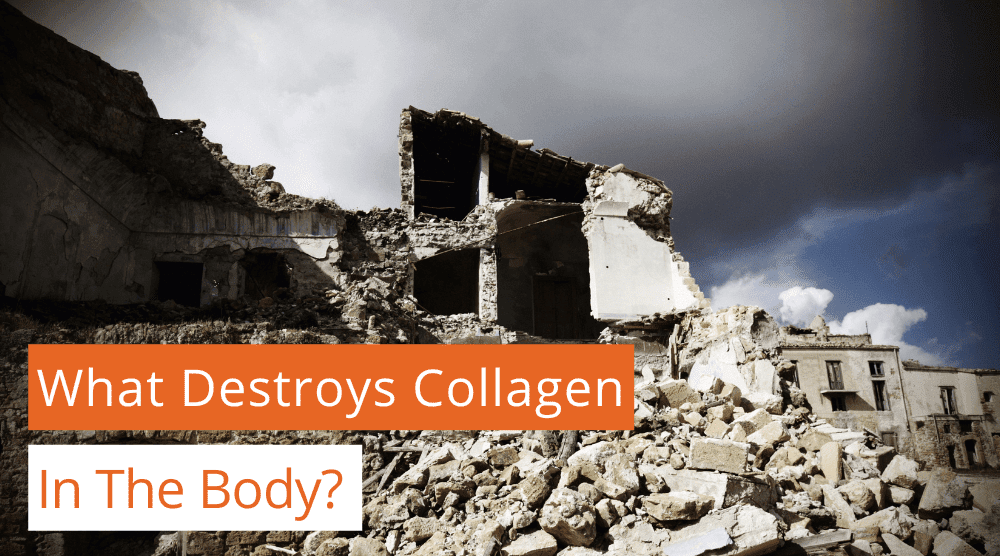



Do you have the collagen in pill or tablet form? Why powder?! Does it absorb faster?
Hello Marisa,
No, we do not provide collagen in a pill or tablet form. Our powder contains hydrolyzed collagen peptides which make it easily absorbed by the body. It also contains multiple types of collagen which work synergistically with other nutrients in the body like vitamin C and hyaluronic acid for maximum effect.
We hope you decide to give it a try. Check it out here: https://shop.organixx.com/products/clean-sourced-collagens-30-servings
Happy Holidays! :)